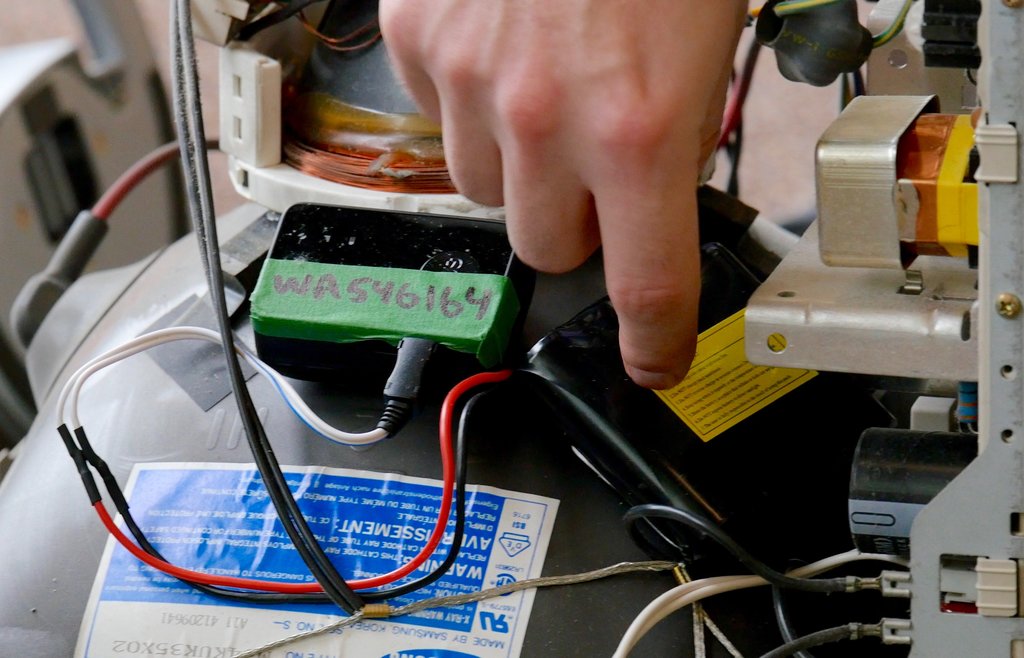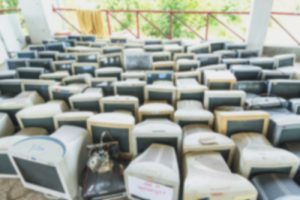 After a five-month hiatus, India’s Videocon has begun accepting CRT glass from its main U.S. suppliers.
After a five-month hiatus, India’s Videocon has begun accepting CRT glass from its main U.S. suppliers.

E-Scrap News magazine is the premier trade journal for electronics recycling and refurbishment experts. It offers updates on the latest equipment and technology, details trends in electronics recycling legislation, highlights the work of innovative processors, and covers all the other critical industry news.
Sign up for our free weekly e-newsletters to receive the latest news directly.
 After a five-month hiatus, India’s Videocon has begun accepting CRT glass from its main U.S. suppliers.
After a five-month hiatus, India’s Videocon has begun accepting CRT glass from its main U.S. suppliers.
 The Basel Action Network has released a follow-up report to its e-scrap tracking study, detailing which firms handled material that was ultimately exported.
The Basel Action Network has released a follow-up report to its e-scrap tracking study, detailing which firms handled material that was ultimately exported.
 Federal officials are currently considering a change to export regulations that would require companies to document all shipments of used electronic shipments abroad.
Federal officials are currently considering a change to export regulations that would require companies to document all shipments of used electronic shipments abroad.
 A bill advancing in the Washington state legislature blacklists e-scrap processors that twice violate state program rules. It also requires the disclosure of prices processors charge.
A bill advancing in the Washington state legislature blacklists e-scrap processors that twice violate state program rules. It also requires the disclosure of prices processors charge.
 A Washington state metals recycling company has grown its e-scrap capabilities by acquiring a facility previously owned by IMS Electronics Recycling.
A Washington state metals recycling company has grown its e-scrap capabilities by acquiring a facility previously owned by IMS Electronics Recycling.
 A Basel Action Network project that followed the trail of broken devices didn’t just lead to a loss of certification for one company – it also prompted an entire state program to take action, recent analysis shows.
A Basel Action Network project that followed the trail of broken devices didn’t just lead to a loss of certification for one company – it also prompted an entire state program to take action, recent analysis shows.
 Markets and regulations are forcing companies active in the nation’s largest state electronics recycling program to landfill CRT glass. The move is legal, but it’s raising difficult questions for the many processors that have publicly vowed to avoid disposal.
Markets and regulations are forcing companies active in the nation’s largest state electronics recycling program to landfill CRT glass. The move is legal, but it’s raising difficult questions for the many processors that have publicly vowed to avoid disposal.
 Growing volumes of Nigerian e-scrap coincide with an evolving processor field, and port workers will have an early vote on a labor contract that could bring some stability to West Coast exports.
Growing volumes of Nigerian e-scrap coincide with an evolving processor field, and port workers will have an early vote on a labor contract that could bring some stability to West Coast exports.
 A Utah man with connections to failed e-scrap company E-Waste Systems has agreed to pay more than $3 million in response to allegations he defrauded investors and pumped up the firm’s stock price.
A Utah man with connections to failed e-scrap company E-Waste Systems has agreed to pay more than $3 million in response to allegations he defrauded investors and pumped up the firm’s stock price.
An electronics recycling firm has been sued by Microsoft for allowing more than 70,000 Microsoft Office key cards to be re-sold on the black market. Continue Reading
